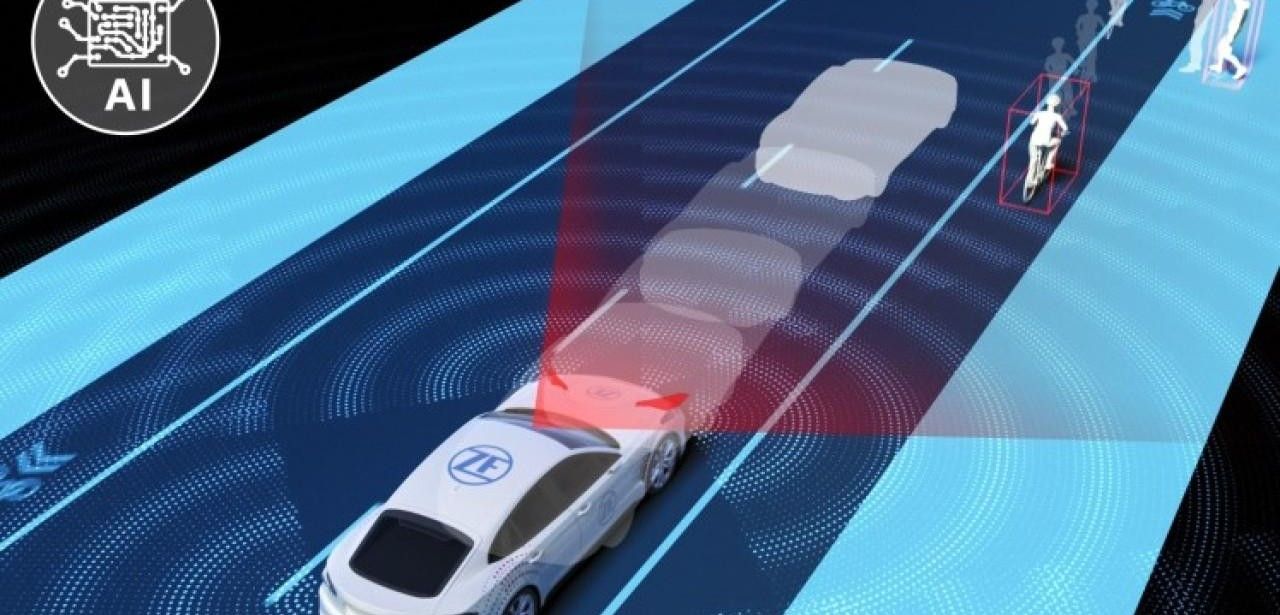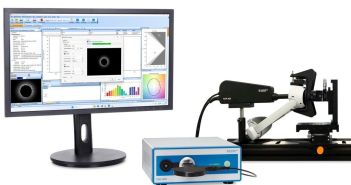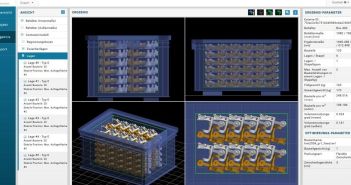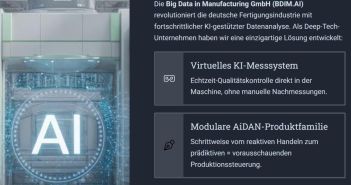Artificial Intelligence (AI) has the potential to significantly improve road safety by accurately predicting unpredictable traffic situations. However, the ability of AI to do so is not yet fully utilized. To address this, ZF, INGgreen GmbH, and the Technical University of Dortmund joined forces in 2021 for the KISSaF project (AI-based Situation Interpretation for Automated Driving). The project focuses on training AI algorithms to predict the behavior of road users, enabling automated driver assistance systems to operate more precisely and safely. After three years of research, the project has been successfully completed, with results showcasing the superiority of the new method over previous approaches.
Table of Contents: What awaits you in this article
KI-Algorithmen verbessern die Vorhersage menschlichen Verhaltens im Verkehr
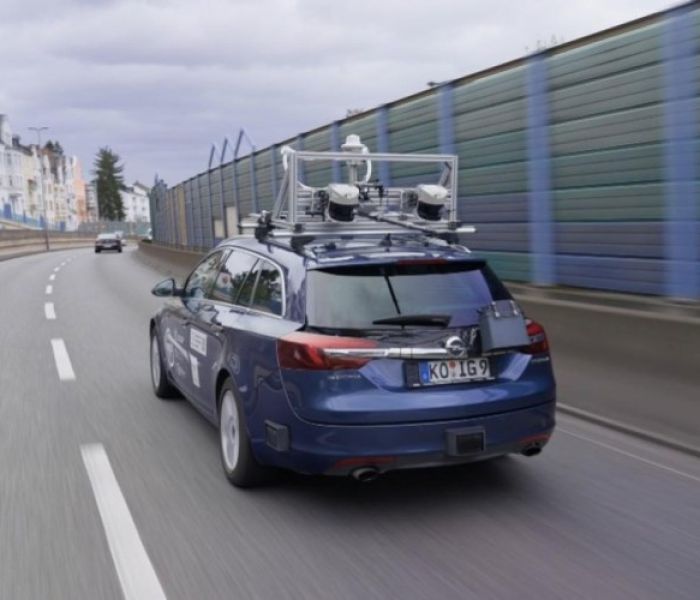
Auf mehr als 100.000 Kilometern Strecke erfasste ein Versuchsträger (Foto: ZF Group)
Improved prediction of human driver behavior through advancements in AI algorithms has the potential to enhance the safety of automated and autonomous systems. While experienced human drivers understand the importance of driving proactively, current AI algorithms struggle to accurately predict the actions of other road users. However, by enhancing the capabilities of AI in this regard, the overall safety of road traffic can be improved, particularly as the number of vehicles equipped with advanced automated and autonomous assistance systems continues to grow.
The research project KISSaF was driven by the need to improve the ability of artificial intelligence (AI) algorithms to predict the behavior of human road users. ZF, the Technical University of Dortmund, and INGgreen collaborated on developing a scene prediction system for the road traffic. This system allows automated driving assistance systems to anticipate the actions of other road users in advance, enabling safer and more efficient driving.
AI-based Scene Prediction: Enhancing Traffic Safety with Anticipatory Driving
The KI-based scene prediction allows for the anticipation and reaction to the most likely actions of other road users several seconds in advance. For instance, it can predict if a distracted pedestrian using their smartphone is likely to step onto the road without caution. It can also assess the factors involved in an automated lane change, such as whether the preceding vehicle is slowing down. By considering these factors, the system can react proactively and mitigate potential risks.
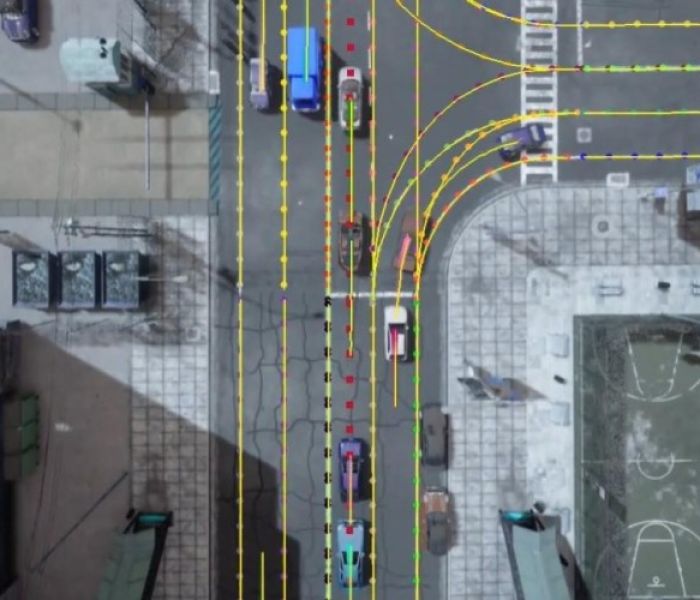
Die Ergebnisse im Projekt KISSaF können dabei helfen, dass (Foto: ZF Group)
In order to train an AI to accurately predict such behaviors, a large amount of data from real-world traffic is required. To collect this data, a measurement vehicle equipped with sensor and actuator systems was developed. Over a distance of more than 100,000 kilometers, camera, radar, and lidar data, as well as relevant GPS and weather information, were recorded. The raw data from the project amounts to nearly 800 terabytes. Subsequently, algorithms for environmental description were developed to make the data usable for the project.
The AI prediction model was trained using the environment modeling data in ZF’s AI Lab in Saarbrücken. The accuracy of the prediction was then tested through simulations and real-world data recorded in ZF’s existing assistance systems.
Improved AI Predicts Behavior of Other Road Users, Enhancing Safety
The KISSaF project successfully trained the AI to improve its ability to predict the behavior of other road users, enabling future assistance systems to act proactively and anticipate potentially dangerous situations. This advanced scene prediction technology has the potential to significantly enhance road safety by allowing automated systems to react more effectively and prevent accidents.
The developed KISSaF project showcases how artificial intelligence can enhance the safety of automated driving systems by accurately predicting potentially critical lane changes that are either abandoned or not initiated. Furthermore, the system can anticipate the gaps created for lane changes, ensuring the vehicle’s safe navigation through traffic. Additionally, the AI’s ability to stop in a timely manner when encountering oncoming traffic at intersections has been significantly improved through the developed methodology.
The findings of the study aim to contribute to the optimization of highly automated driver assistance systems of automation levels 2+ and 3 according to SAE. These systems can be controlled by central control units and high-performance computers like the ZF ProAI. The insights gained from the study will help improve the functionality and performance of these advanced driver assistance systems, enhancing their ability to assist drivers and ensure safer and more efficient driving experiences.
The research project KISSaF deliberately focused on a practical setup, utilizing sensor technology and AI systems that are closer to market readiness compared to other systems. This approach ensures that the developed functions are applicable in real-world scenarios and can be further developed for future projects. The raw data collected during the project also holds relevance for upcoming development endeavors. Overall, KISSaF demonstrates a high degree of practical relevance in multiple aspects.
The KISSaF project, which has been funded by the Federal Ministry for Economic Affairs and Energy since January 2021, aims to improve traffic safety through the use of Artificial Intelligence. The project has successfully trained AI algorithms to predict the behavior of other road users, enabling automated driver assistance systems to operate more accurately and safely. The official results of the project will be presented on 11th April 2024 in Düsseldorf as part of the KoTAM event series, which focuses on autonomous mobility testing fields in Germany.
Research project KISSaF demonstrates AI’s potential for improving traffic safety
The research project KISSaF has demonstrated the potential of Artificial Intelligence (AI) to enhance traffic safety through improved prediction of the behavior of other road users. The developed scene prediction enables automated driver assistance systems to operate more proactively and safely. By accurately anticipating critical situations, potential accidents can be avoided. This innovative approach represents a significant step towards a safer and more efficient future mobility.
By predicting critical situations, potential accidents can be prevented. The results of the project demonstrate that the new method performs better than previous approaches. Project KISSaF thus represents an important step towards a safer and more efficient future mobility.


